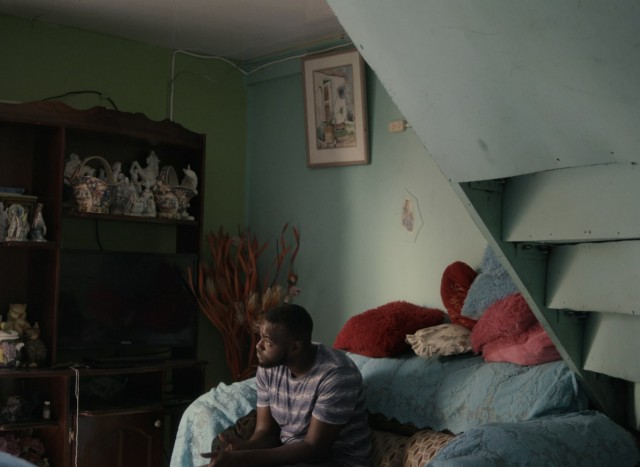When you think about people ripped from their homeland and forced to live in a foreign land, you’d usually imagine them fleeing a war-torn country, escaping a life of terrible hardship. The wasn’t the case for the three men at the heart of Ellen Evans’ insightful short doc Motherland. Transporting its viewers to Jamaica to hear the stories of a trio of deportees having to start a new life on the Caribbean island, this empathetic 13-minute film will have you questioning notions of nationality and home, with its humanistic approach.
Originally commissioned and funded for The Uncertain Kingdom project – an anthology of twenty short films examining the state of the UK today – Evans’ experiences as an immigration and asylum caseworker led her to tackle “the idea of ‘Britishness’ itself” through the subject of deportation. Originally planning to film in the UK, focusing the film on a family awaiting a deportation decision, the filmmaker’s research put them in touch with the National Organisation for Deported Migrants (NODM) in Jamaica and the short’s attention was diverted elsewhere.
“A film from the perspective of men who have been deemed ‘not British’ by our government”
“We decided to situate the film further along the timeline, and tell the stories of those who had already been deported, and were now struggling to adapt to life in another continent”, Evans explains as discuss the motivation behind Motherland. “So we left England for Jamaica, to make a film from the perspective of men who have been deemed ‘not British’ by our government, but whose feelings and experiences attest otherwise”.
Centred around what Evans describes as “the injustices of the British immigration system”, though Motherland examines the specific stories of these three individuals, its appeal lies very much in that aforementioned humanistic approach and its universal themes. As you hear Ken, Tremayne and A.T. discuss the alienating effects of being placed in an unfamiliar environment against their will, it’s hard not to feel genuine sympathy for their situation. Underneath this empathy, you even start to question how you would react in such a scenario – they’re disturbing circumstances to even have to imagine.

Treymayne (pictured) & A.T. we filmed with lots of headspace so they “occupy a small space in the frame and appear somewhat lost in their immediate environment”.
Describing her previous films (Life in Miniature & Country Girl) as “single-character portraits”, Evans views Motherland as “more of an essay film in terms of its logic and structure”. Utilising talking-head interviews (something she has avoided in past productions), the director worked with her cinematographer Thomas Doran to ensure a sense of isolation and abandon was present in the visual language of the film – reflecting the stories of her interviewees. Eager to capture the effect Britain has not only had on these individuals, but on the country of Jamaica itself (as deportee Ken explains – “the scars of the British are everywhere”), Evans was keen to ensure “the whole film questions this idea of home”.
As a Brit myself, I’ve always struggled with this idea of being proud of my nationality. Pride is something that should be earned, not just assumed because of where you were born. In my lifetime my homeland has never given me much to celebrate and watching Evans’ Motherland has once again provoked me to question what it means to be British. As a father of two half British/half Greek children I want them to grow up knowing the full story when it comes to the history of their birthplace and then they can make their own decisions on nationality and what it means to them. For me, the jury is still out.

 Rob Munday
Rob Munday